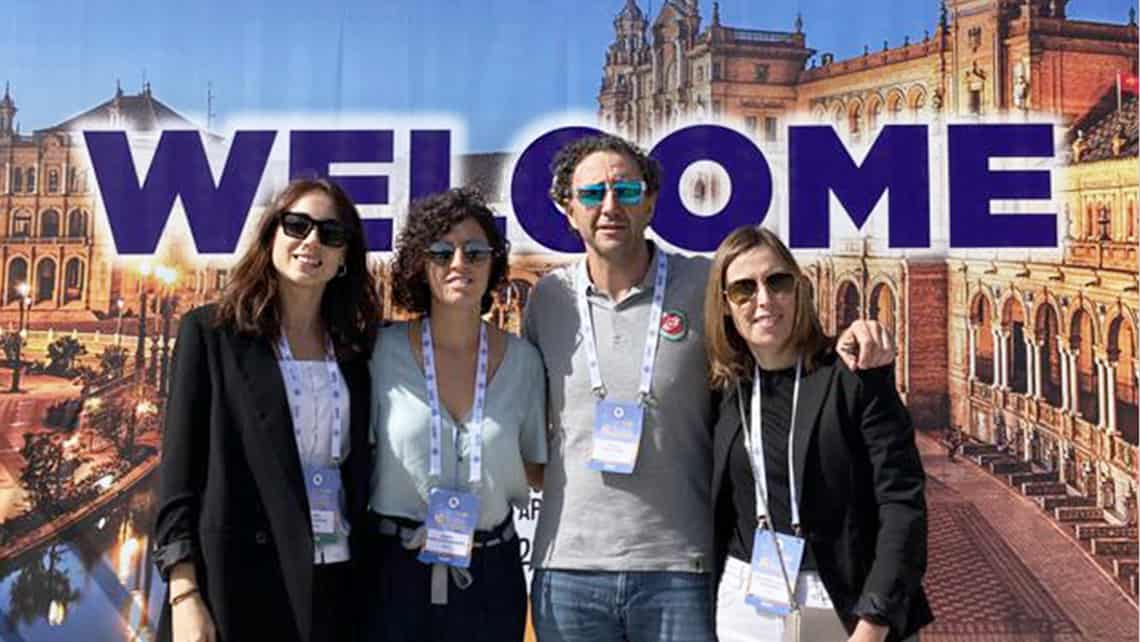Instituto Bernabeu presents at the Alpha congress in Seville a genetic study to discover the causes of male infertility
October, 13th 2022

Instituto Bernabeu has revealed a novel genetic study to discover the causes of male infertility at the fertility experts meeting held in Seville from October 6th to 9th. Due to its relevance, the work has been presented as an oral communication at the 13th Alpha Biennial Conference where professionals from all around the world have gathered to address the different facets of in vitro fertilisation (IVF). At the same time, the clinic has been present at this congress with three other scientific researches in poster format.
In her oral presentation “Next generation sequencing” as a potential diagnostic tool of teratozoospermia related infertility, IB Biotech’s molecular biologist, Ana Pay, presented the important progress made by Instituto Bernabeu with the results obtained after the development of a genetic panel of the male factor (IBgen Sperm), which analyses 426 genes related to spermatogenesis by means of massive sequencing. This analysis has been performed in patients with teratozoospermia, the morphological alteration of spermatozoa, one of the causes of male infertility.
In the sperm with teratozoospermia analysis, there are less than 4% normal sperm, which prevents them from fertilising the egg. So far, identifying the molecular basis of this disease has been a real challenge.
The analysis has found pathogenic variants in 35% of patients and in genes that could potentially influence sperm morphology. This genetic panel is a breakthrough for personalised treatment and appropriate genetic counselling. And it is a step forward in understanding the causes of male infertility.
Three posters
Instituto Bernabeu’s representation at the Alpha Biennial Conference was completed with the presentation of three studies in poster format. The research “No laser use in “flicking” embryo biopsy does not reduce the mosaicism rate”, led by embryologist Laura Cascales, has evaluated whether the number of laser impacts in the biopsy for genetic analysis of the embryo affects the mosaicism rate.
The aim of the research “Embryoglue® as medium for embryo transfer: does it really improve the outcomes? A prospective randomized controlled trial”, led by Dr Jorge Ten, director of the Embryology Unit, is to find out whether the use of Embryoglue® culture medium improves the results of embryo implantation compared to conventional media.
And a third study entitled “Individual or group embryo culture? A pilot study and subsequent prospective randomized trial to evaluate blastocyst formation rate, quality and reproductive outcomes”, led by biologist Miguel Herrero, has investigated whether it is more convenient to culture embryos individually or in groups.
As a complement to this meeting, on October 6 Instituto Bernabeu collaborated in the workshop on embryo vitrification Best practices in laboratory with Kitazato Cryotop methos and hypure oils, in which the head of the Instituto Bernabeu Madrid laboratory, the embryologist Leyre Herrero, participated.

